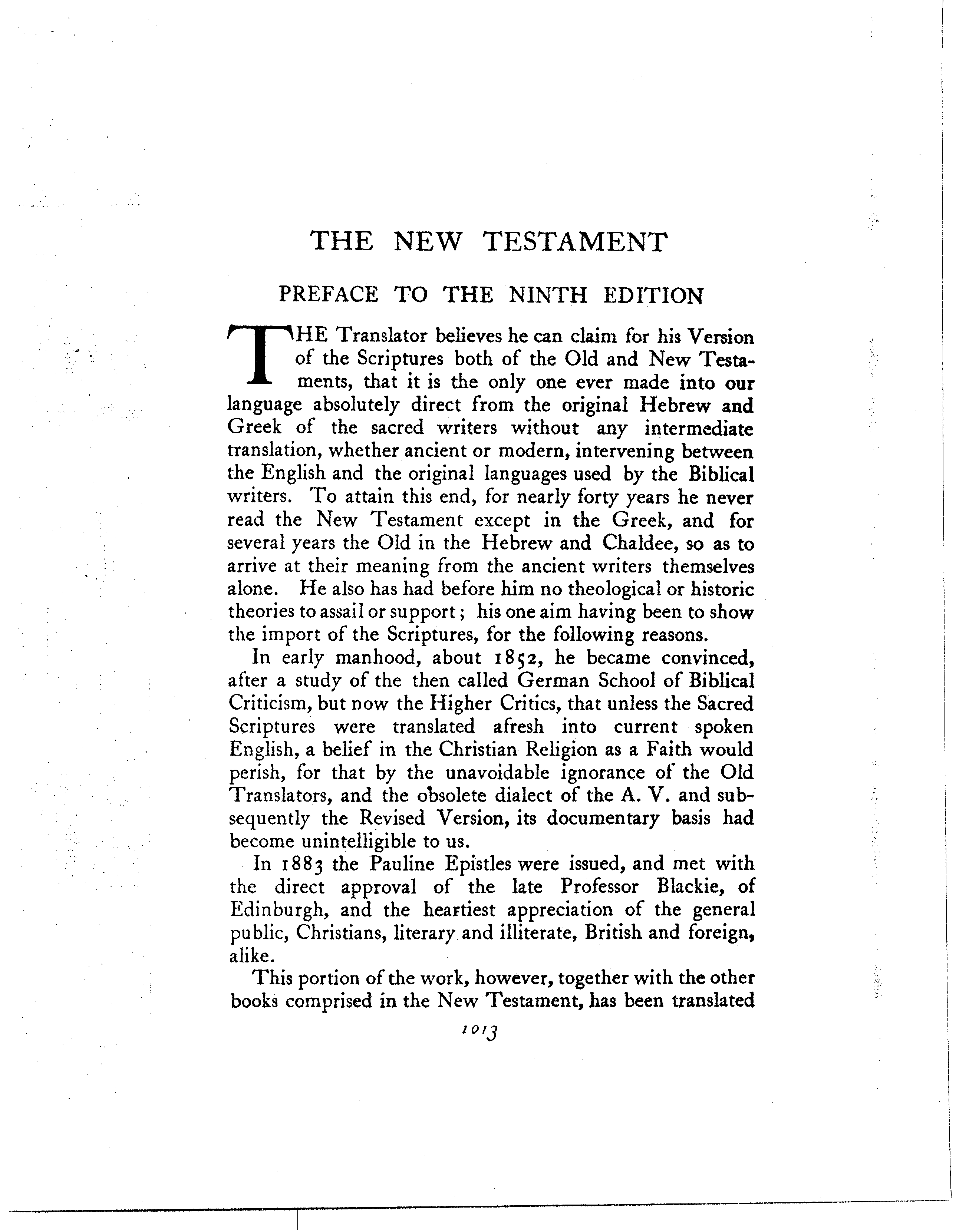Second Book of Chronicles - Ferrar Fenton Bible Translation page 1013
The Psalms, Solomon and Sacred Writers
language absolutely direct from the original Hebrew and Greek of the sacred writers without any intermediate translation, whetherancient or modern, intervening between the English and the original languages used by the Biblical writers. To attain this end, for nearly forty years he never read the New Testament except in the Greek, and for several years the Old in the Hebrew and Chaldee, so as to arrive at their meaning from the ancient writers themselves alone. He also has had before him no theological or historic theories to assail or support; his one aim having been to show the import of the Scriptures, for the following reasons. In early manhood, about 18 52, he became convinced,
after a study of the then called German School of Biblical Criticism, but now the Higher Critics, that unless the Sacred Scriptures were translated afresh into current spoken English, a belief in the Christian Religion as a Faith would perish, for that by the unavoidable ignorance of the Old Translators, and the obsolete dialect of the A. V. and sub- sequently the Revised Version, its documentary basis had become unintelligible to us. In 1883 the Pauline Epistles were issued, and met with
the direct approval of the late Professor Blackie, of Edinburgh, and the heartiest appreciation of the general public, Christians, literary, and illiterate, British and foreign, alike. This portion ofthe work, however, together with the other
books comprised in the New Testament, has been translated I O I3
